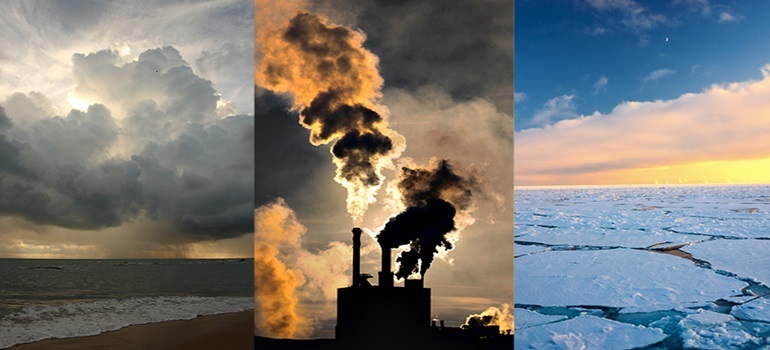
There is no “appetite” to change the historic Paris agreement on climate change and it is “ridiculous” for anyone to term it unfair, UN Environment chief Erik Solheim has said, referring to US President Donald Trump’s claim the deal was unjust and favours India and China.
Solheim said the US is “absolutely wrong” in thinking that India and China got a sweeter deal in the French capital in 2015.
The Paris agreement aims to strengthen the global response to the threat of climate change by keeping the global temperature rise this century under two degrees Celsius above pre-industrial levels. It also aims to pursue efforts to limit the temperature increase even further to 1.5 degrees Celsius.
Trump has repeatedly blamed India and China for his decision to withdraw from the Paris climate accord last year, claiming the agreement would have made the US pay for nations which benefited the most from the deal.
Announcing to withdraw from the deal in June last year, Trump said the accord would have cost the US trillions of dollars and killed jobs. However, he said he would be open to renegotiate the deal, agreed by nearly 200 nations after negotiations for a year.
“There is no appetite anywhere for a changed deal in Paris agreement. The climate deal was based on the fact that nearly all pollution come historically to the atmosphere from Europe and North America. That cannot be denied. Even Chinese emission per capita is one-fourth of American per capita,” the UN Environment chief said yesterday.
“China is bigger in absolute terms but is much, much smaller in terms of emissions per capita and India has one-tenth of emission per capita. I think to say that the deal was not fair was ridiculous,” Solheim told .
When asked about his opinion about Trump blaming India and China for striking a better deal than the US, he said the two Asian countries are leading the charge against climate change.
“Of course, India is doing it for itself not for any one else but there is no appetite for renegotiation for the US,” he said.
Environment Secretary C K Mishra said recently that there has been a talk of reopening of some of the clauses of Paris agreement but India is not in favour and that has been largely accepted. He said India would not have any adverse impact as far as negotiations are concerned in wake of US’s withdrawal.
Amid an increase in the number of natural disasters in India and across the world, Solheim said countries need to prepare for disasters and also attempt to reduce emissions.
“One way is reduce emission to see less climate change but then there is also a need to prepare for it,” he said.
“The reality is that in any extreme weather event is affecting the extreme poor more than anyone else. It is overwhelming to see how extreme poor are affected by natural disasters. The global poverty has halved in the last 15 years and we need to continue our efforts,” he added.
Asked if it is possible to take economic development and environment protection together, he said they can definitely go hand in hand.
“In fact, to the contrary, if you look at Europe, especially Germany, which is possibly the most advanced economy in the world, is also one of the greenest nations on the planet and they have turned a number of environment protection practices into reality. It is a very old-fashioned idea that development and environment protection cannot go hand in hand,” he said.
“It may have been true that in early phases of industrial revolution – because there was no alternative for coal or fossil fuels – one could not get energy from other forms but now in times of solar everyone can compete with coal. Now development and environment can go hand in hand in presence of renewable sources of energy,” he said.
Talking about public transport, Solheim said India has a lot to learn from China in developing public transportation.
“In China, 15 years back, only two Chinese cities had metro systems, now 35 cities have metros. Beijing and Shanghai have one of the biggest metro systems in the world. But there is a lot more to be done for development of public transport system like high-speed rail,” he said.
Source: PTI
